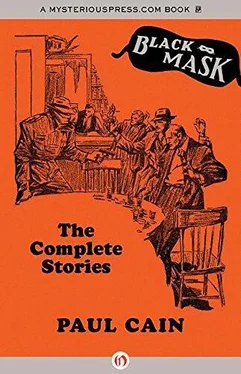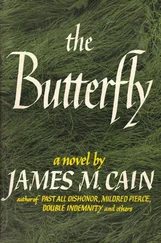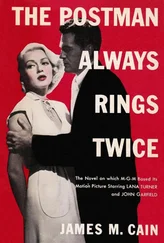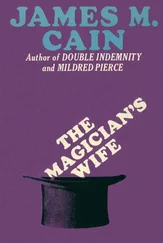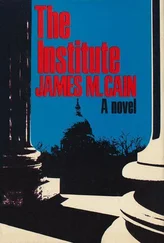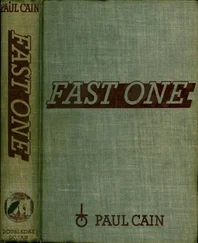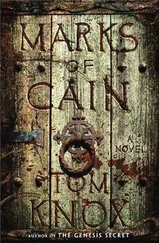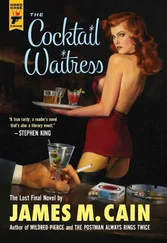Beery said: “Do I look that simple? I’ve got a wife and family.”
Kells grinned. He didn’t say anything. He put the folded paper in his pocket.
“Anyway, I’m not going downtown. I’m coming along.”
Kells nodded abstractedly, glanced at his watch. It was twentytwo minutes past ten.
Outside, there was a long ragged buzz of faraway thunder. The telephone clicked as Fenner dialed a number.
They sat in Fenner’s apartment at the Manhattan and Beery, at Fenner’s insistence, poured many drinks. Fenner sat at one end of the divan, still holding a handkerchief to his face. That had been explained as a result of the holdup earlier in the evening. Hanline, Fenner’s secretary, was there and Abe Gowdy, Fenner’s principal contact man with the liberal element. They hadn’t been able to reach Dickinson.
Gowdy swung the vote of practically every gambler, grafter, thief, bootlegger and so on in the county, excepting the few independents who tried to get along without protection. He was a bald, paunchy man with big white bulbs of flesh under his eyes, a loose pale mouth. He wore dark, quiet clothes and didn’t drink.
Hanline was a curly-haired, thin-nosed Jew. He drank a great deal.
He and Beery and Kells all drank a great deal.
Kells paced back and forth. He said: “Try him again.”
Fenner reached wearily for the phone, asked for a Fitzroy number. He listened a little while and hung up.
Kells stopped near Fenner, looked first at Gowdy, then Hanline.
“Gentlemen,” he said. “Lee” — he indicated Fenner with a fond pat on the shoulder — “Lee and I have entered into a partnership.” He paused, picked up a small glass full of whiskey and cracked ice, and drained it.
“We all know,” he went on, “that things haven’t been so good the last three or four years — and we know that unless some very radical changes are made in the city government things won’t get any better.”
Hanline nodded.
“Lee and I have talked things over and decided to join forces.” Kells put down the glass.
Gowdy said: “What do you mean, ‘join forces,’ Mister Kells?”
Kells cleared his throat, glanced at Beery. “You boys have the organization,” he said. “You, Gowdy — and Frank Jensen, and O’Malley — and Lee here. My contribution is very important political information, which I’ll handle in my own way and at my own time — and a lot of friends in the East who are going to be on their way out here tomorrow.”
Hanline looked puzzled. Gowdy glanced expressionlessly at Fenner.
“Bellmann’s dead,” Kells went on, “and the circumstances of his murder can be of great advantage to us if they’re handled in exactly the right way. But that, alone, isn’t going to swing an election. We’ve got the personal following of all this administration to beat — and we’ve got Rose’s outfit to beat...”
Hanline asked: “Rose?”
Kells poured himself another drink. “Rose has built up a muscle organization of his own in the last few months — and a week or so ago he threw in with Bellmann.”
Hanline and Gowdy glanced at one another, at Fenner.
Kells said: “There it is.” He sat down.
Fenner got up and went into the bedroom. He came back presently, said: “It’s a good proposition, Abe. Mister Kells wants to put the heat on Rose—”
Kells interrupted: “I want to reach Dickinson tonight and see if we can’t get the first number of the Guardian on the streets by morning. There are certain angles on the Bellmann thing that the other papers won’t touch.”
Hanline said: “Maybe he’s at Ansel’s — but they don’t answer the phone there after ten.”
“Who’s Ansel?”
Hanline started to answer but Gowdy interrupted him: “Did you know that Rose was backing Ansel?” Gowdy was looking at Fenner.
Fenner shook his head, then spoke to Kells: “Ansel runs a couple crap games down on Santa Monica Boulevard — Dickinson plays there quite a bit.”
Kells said: “So Dickie is a gambler?”
Hanline laughed. “I’ll bet he’s made a hundred thousand dollars with the dirt racket in the last year,” he said. “And I’ll bet he hasn’t got a dollar and a quarter.”
Kells smiled at Fenner. “You ought to take better care of your hired men,” he said. Then he got up and finished his drink and put on his hat. “I’ll go over and see if I can find him.”
Beery said: “I’ll come along.”
Kells shook his head slightly.
Hanline stood up, stretched. He said: “It’s the first building on the south side of the street, west of Gardner — used to be a scene painter’s warehouse or something like that — upstairs.”
“Thanks.” Kells asked Fenner: “Dickinson’s the guy that was typewriting at the place downtown?”
Fenner nodded.
Hanline said: “If you don’t mind, I’m going back downstairs and get some sleep. I was out pretty late last night.”
“Sure.” Kells glanced at Gowdy.
Kells and Hanline went out, down in the elevator. Hanline got off at the fifth floor.
Kells stopped at the desk, asked for the house detective. The clerk pointed out a heavy, sad-eyed man who sat reading a paper near the door. Kells went over to him and said: “You needn’t hold the man Fenner was going to file charges against.”
The man put down his paper. He said: “Hell, he was gone when I got upstairs. There wasn’t nobody there but Mister Dillon.”
Kells said: “Oh.” He scratched the back of his head. “How’s Dillon?”
“He’ll be all right.”
Kells went out and got into a cab.
Ansel’s turned out to be a dark, three-story business block set flush with the sidewalk. There were big For Rent signs in the plateglass windows, and there was a dark stairway at one side.
Kells told the cabdriver to wait and he went upstairs.
Someone opened a small window in a big heavily timbered door, surveyed Kells dispassionately.
Kells said: “I want to see Ansel.”
“He ain’t here.”
“I’m a friend of Dickinson’s — I want to see him.”
The window closed and the door swung slowly open; Kells went into a very small room littered with newspapers and cigarette butts. The man who had looked at him through the window patted his pockets methodically, silently.
Another man, a very dark-skinned Italian or Greek, sat in a worn wicker chair tilted back against one wall.
He said: “Your friend Dickinson — he is very drunk.”
Kells said, “So am I,” and then the other man finished feeling his pockets, went to another heavy door, opened it.
Kells went into a very big room. It was dark except for two clots of bright light at the far end. He walked slowly back through the darkness, and the hum of voices grew louder, broke up into words:
“Eight... Point is eight, a threeway... Get your bets down, men... Throws five — point is eight... Throws eleven, a field point, men... Throws four — another fielder. Get ’em in the field, boys... Five... Seven out. Next man. Who likes this lucky shooter?...”
Each of the two tables was lined two deep with men. One powerful green-shaded light hung above each. The dice man’s voice droned on:
“Get down on him, boys... Ten — the hard way... Five... Ten — the winner... All right, boys, he’s coming out. Chuck it in...”
Kells saw Dickinson. He was standing at one end of one of the tables. He was swaying back and forth a little and his eyes were half closed, and he held a thick sheaf of bills in his left hand.
“Seven — the winner...”
Dickinson leaned forward and put his forefinger unsteadily down beside a stack of bills on the line. The change man reached over, counted it and put a like amount beside it.
Читать дальше
